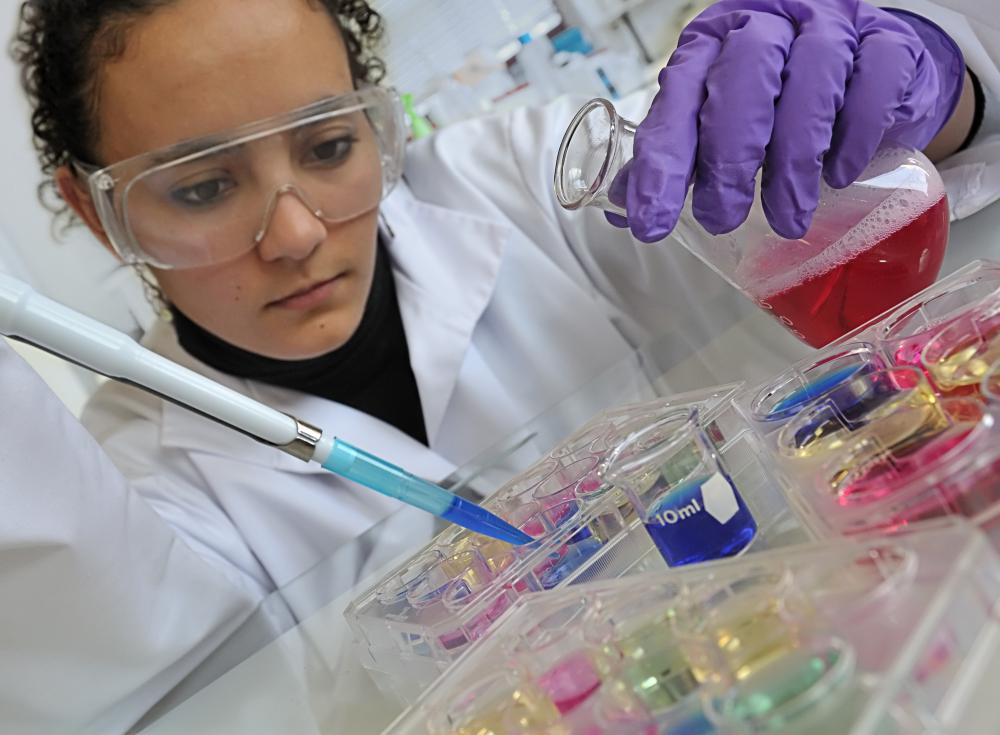At WiseGEEK, we're committed to delivering accurate, trustworthy information. Our expert-authored content is rigorously fact-checked and sourced from credible authorities. Discover how we uphold the highest standards in providing you with reliable knowledge.
How Do I Get a Master of Biological Sciences Degree?
Obtaining a Master of Biological Sciences degree requires an undergraduate degree in an appropriate science, acceptance into a college offering graduate education in the biological sciences and the desire to pursue work within the field. It is no more difficult to attain than other master's degrees, and the steps to obtain one are very similar to the requirements for any other scientific degree. Some expectations vary by college or by individual degree program. For example, teachers pursuing a Master of Biological Sciences are often in programs with atypical course progression and focus to better emphasize their needs as educators. Most programs, however, are fairly standardized.
Like all master's degrees, a biological sciences degree is part of a graduate program. As such, students pursuing their master's must first satisfactorily complete undergraduate studies at an accredited institution. Their education background should be relevant to the biological sciences to warrant further education, such as an undergraduate degree in the natural sciences. These would include biology and chemistry, but other sciences are also acceptable. A degree in one of these disciplines is not necessarily required to pursue a master's degree in biological sciences, but it is harder to justify admittance into a graduate program without relevant prior education.

Earning admittance into a graduate program for a Master of Biological Sciences degree requires more than successfully completing an undergraduate degree, however. To be permitted to continue education in the field, applicants are required to submit transcripts from prior colleges and often must meet a minimum grade point average (GPA), with a 3.0 or better a common standard. Prior education must be from an accredited institution and students may also be expected to provide letters of reference, a statement of goals and an updated resume showing two years or more of experience in the workforce. Depending on the university, applicants may need to pass either the Graduate Management Admission Test (GMAT) or Graduate Record Exam (GRE), although the exact score needed varies by institution. Some of these requirements may be waived for promising students lacking an appropriate GPA or work experience, depending on the university's flexibility.
The coursework in a Master of Biological Sciences degree program allows for a much narrower focus than found in undergraduate natural sciences studies. Students may concentrate on a specific discipline of the biological sciences, such as plants, genetics or animal biology. Regardless of the individual focus, however, a Master of Biological Sciences degree will require substantial amounts of lab work and research to complete. The student must be committed for the two to three years it takes to complete the program and will be expected to complete some manner of special project to finish their studies. This may take the form of a thesis or a practical research project.
AS FEATURED ON:
AS FEATURED ON:











Discuss this Article
Post your comments